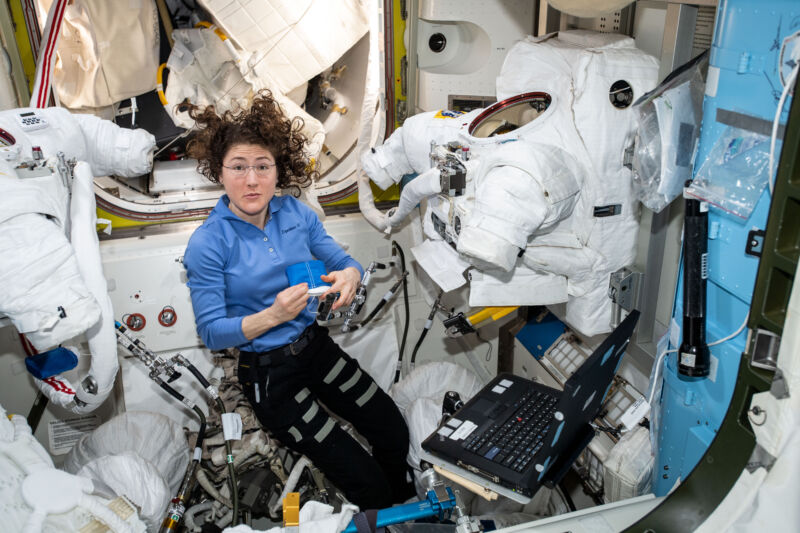

We don’t know why, but being in space causes us to destroy our blood
source link: https://arstechnica.com/science/2022/01/we-dont-know-why-but-being-in-space-causes-us-to-destroy-our-blood/
Go to the source link to view the article. You can view the picture content, updated content and better typesetting reading experience. If the link is broken, please click the button below to view the snapshot at that time.
Sanguine —
We don’t know why, but being in space causes us to destroy our blood
Space anemia is tied to being in the void and can stick around awhile.
Doug Johnson - 1/14/2022, 4:00 PM

Space isn’t easy on humans. Some aspects are avoidable—the vacuum, of course, and the cold, as well as some of the radiation. Astronauts can also lose bone density, thanks to a lack of gravity. NASA has even created a fun acronym for the issues: RIDGE, which stands for space radiation, isolation and confinement, distance from Earth, gravity fields, and hostile and closed environments.
New research adds to the worries by describing how being in space destroys your blood. Or rather, something about space—and we don’t know what just yet—causes the human body to perform hemolysis at a higher rate than back on Earth.
This phenomenon, called space anemia, has been well-studied. It’s part of a suite of problems that astronauts face when they come back to terra firma, which is how Guy Trudel—one of the paper’s authors and a specialist in physical medicine and rehabilitation at The Ottawa Hospital—got involved. “[W]hen the astronauts return from space, they are very much like the patients we admit in rehab,” he told Ars.
Space anemia had been viewed as an adaptation to shifting fluids in the astronauts’ upper bodies when they first arrive in space. They rapidly lose 10 percent of the liquid in their blood vessels, and it was expected that their bodies destroyed a matching 10 percent of red blood cells to get things back into balance. People also suspected that things went back to normal after 10 days. Trudel and his team found, however, that the hemolysis was a primary response to being in space. “Our results were a bit of a surprise,” he said.
Advertisement
In space, no one can hear you breathe into a can
To study space anemia, Trudel worked with 14 astronauts on a six-month stint on the International Space Station. The astronauts brought specialized canisters and exhaled into them at four set intervals: at five days, 12 days, three months, and just before heading home at six months. Then, with their primary mission over, they brought the canisters back down to Earth, breath and all.
Back in the lab, the researchers looked at the astronauts' breath using a high-resolution gas chromatograph, which measures the amount of carbon monoxide they were producing after different amounts of time in space. According to Trudel, carbon monoxide is created each time a red blood cell is hemolyzed in the body. This isn’t a perfect connection, as other bodily processes can result in the production of carbon monoxide, like some functions of muscles and livers. However, Trudel noted that an estimated 85 percent of carbon monoxide produced by a human comes from hemolysis.
The team’s results showed that in space, the astronauts’ bodies destroyed around 3 million red blood cells every second. This is 54 percent higher than what happens in human bodies on Earth, where the rate is 2 million every second.
In space, the human body loses fluid, so even though an astronaut's body ends up with fewer red blood cells, the concentration stays at acceptable levels. But when a human returns to Earth, their bodies regain the fluid to cope with the increase in gravity, and space anemia kicks in. “You need more fluid in your blood vessels, and that will dilute your red blood cells,” he said.
After the astronauts returned from their voyage, five out of 13 who had blood drawn upon landing were still clinically anemic. After three or four months, their red blood cell count continued to grow. However, Trudel’s team performed the same test a year later and found that red blood cell destruction was still 30 percent higher in the astronauts. According to the researcher, the longer astronauts stay in space, the longer space anemia will plague them on solid land.
Page:
Recommend
About Joyk
Aggregate valuable and interesting links.
Joyk means Joy of geeK